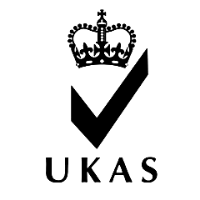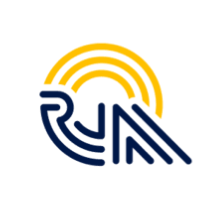What is ISO 17025?
ISO/IEC 17025 General requirements for the competence of testing and calibration laboratories is the main ISO standard used by testing and calibration laboratories. In most countries, ISO/IEC 17025 is the standard for which most labs must hold accreditation in order to be deemed technically competent.
In many cases, suppliers and regulatory authorities will not accept test or calibration results from a lab that is not accredited. Originally known as ISO/IEC Guide 25, ISO/IEC 17025 was initially issued by the International Organization for Standardization in 1999.
There are many commonalities with the ISO 9000 standard, but ISO/IEC 17025 is more specific in requirements for competence and applies directly to those organizations that produce testing and calibration results and are based on somewhat more technical principles.
Laboratories use ISO/IEC 17025 to implement a quality system aimed at improving their ability to consistently produce valid results. It is also the basis for accreditation from an accreditation body.
Benefits of ISO 17025:2017
Save time and money
Increase in business
Performance guideline
Greater efficiency
Compliance assurance
Improved team morale
ISO 17025:2017 Video
Who can be Certified ISO 17025:2017?
ISO/IEC 17025 is useful for any organization that performs testing, sampling, or calibration and wants reliable results. This includes all types of laboratories, whether they be owned and operated by the government, industry, or, in fact, any other organization. The standard is also useful to universities, research centers, governments, regulators, inspection bodies, product certification organizations, and other conformity assessment bodies with the need to do testing, sampling, or calibration.
Environmental Lab
Food & Feed Testing Lab
Telecom & Electronics Lab
Calibration Lab
Aerospace Lab
Civil & Construction Lab
Mechanical Lab
Who can issue this Accreditation?

UKAS

GAAS

QASL

IAS

ANSIRAB

RVA

DAR
Document required for ISO 17025:2017
- System Manual
- System Procedure
- Policy
- Objectives
- Mission & Vision
- Standard Operating Procedure (SOP)
- Checklist
- Forms
- Formats
- Records
The extent of Documented Information differs as per:
- Scope of Certificate (Chemical,Biological,Mechanical,Fluid Flow,Forensic,NDT,Photometric Stereo,Logical Diagnostic,Radiology,QA Testing,Software & IT System )
- Location
- Resource Availability
- Testing parameter cover
Role of Shamkris and Process of ISO 17025:201
Shamkris adopts a results-oriented approach to effective system implementation in the organization. A simple and practical method of system implementation helps organizations increase business efficiency and sustainability. Shamkris supports 100% documentation to obtain an accreditation body of success in addition to enhanced performance.
The implementation process is described below:
Day 1
GAP Analysis, Cost Estimates, Application to Accreditation Body
• Finding the GAP between existing system related to Accreditation Body requirements
• Application to Accreditation Body
• Based on the scope of your business & Accreditation Body you choose
Week 1
Developing Documents
• Management System Manual, Management System Procedures, Policy, Objectives, Forms etc.
• Review of Standard Operating Procedures (SOP)
Week 4
Implementing Management System
• Awareness training for the top management and staff
• Implementing a well-documented management system throughout the organization>
Week 8
Internal Audit, MRM, CAPA
• Internal audits identifying nonconformities related to Accreditation Body requirements.
• Management Review Meetings.
• Corrective and Preventive Action plan for nonconformities
Week 10
Accreditation Body, Audit, N-C Closing
• Shamkris acts on your behalf and assists you in the third-party audit
• Closing of any nonconformities identified by the Accreditation Body
Week 12
Accreditation Body
• Accreditation certificate issued for 2 years
• Surveillance Audits yearly
Year on Year
Yearly Compliance
• Support of Yearly documentation for audit
FAQ
ISO 17025 accreditation is a statement to the competence of the calibration laboratory. According to the ISO 17025, any number of national metrology institutes, like the NIST, shall be recognized for acceptable measurement traceability through international approval.
ISO 15189:2012 is an international standard for medical laboratories. Laboratory accreditation helps labs develop quality management systems, assesses their competence and ensures they are functioning in line with industry and legal standards.
ISO/IEC 17025:2017 specifies the general requirements for the competence, impartiality and consistent operation of laboratories. ISO/IEC 17025:2017 is applicable to all organizations performing laboratory activities, regardless of the number of personnel.
ISO/IEC 17025 is the main ISO standard used by testing and calibration laboratories. Although ISO 17025 accreditation is not mandatory, accreditation has rewards and advantages. The industry deems compliance with ISO 17025 requirements as proof of competence. consequently, this serves as a basis for accreditation.
